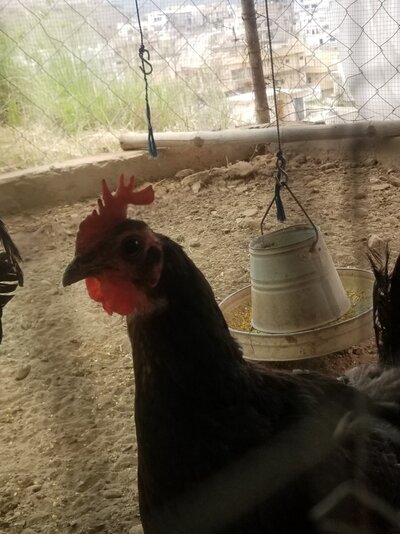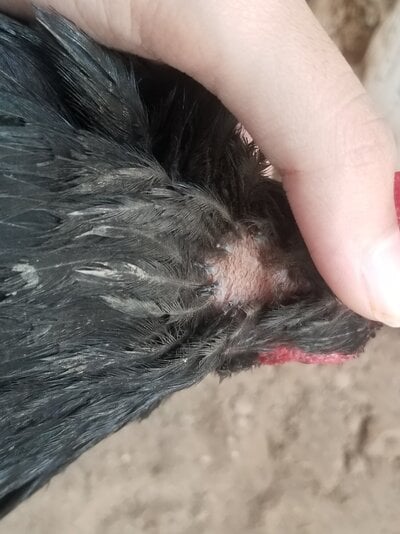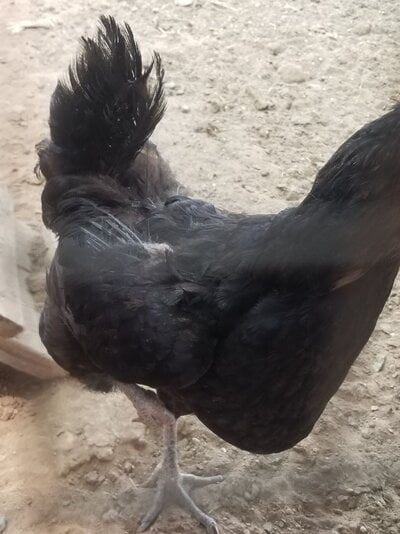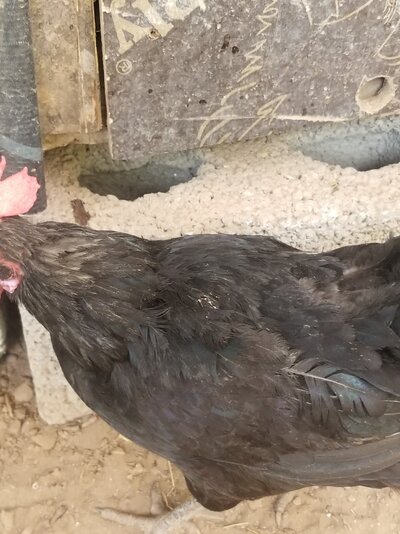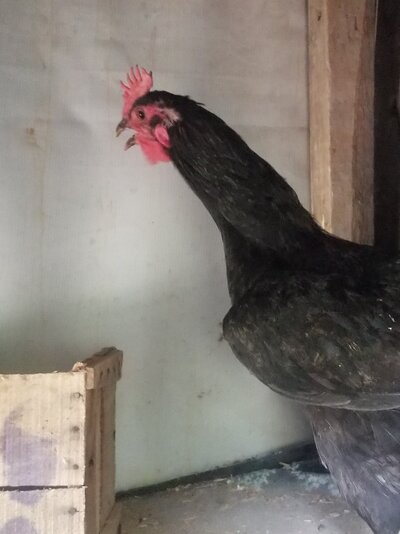fatimastic
Songster
I have a flock of 1 roo : 8 hens of black Australorp.
My rooster is very aggressive, especially towards me. He doesn't allow anyone near his flock and attacks me a lot, which has caused me to observe my hens less.
After spring, the overall appearance of my hens has become somewhat messy and poor. 2 of his favorite hens are going through extreme feather loss. (First 4 pics)
Losing feathers on the head and the wings is a given, but they both also have broken feathers above their tails. Is that also due to the rooster?
All of my hens have a few feathers pecked out from their heads. (5th pic) And they all look dirty with broken feathers here and there.
They all used to look very shiny but now they all are dull looking.
Is this all due to the rooster or do we have a lice/mites situation?
Plus, I am finding a lot of feathers in their coop.
If it is due to the rooster, should we cull him and bring a new rooster? Aren't Australorps known to be docile, calm and polite?
My rooster is very aggressive, especially towards me. He doesn't allow anyone near his flock and attacks me a lot, which has caused me to observe my hens less.
After spring, the overall appearance of my hens has become somewhat messy and poor. 2 of his favorite hens are going through extreme feather loss. (First 4 pics)
Losing feathers on the head and the wings is a given, but they both also have broken feathers above their tails. Is that also due to the rooster?
All of my hens have a few feathers pecked out from their heads. (5th pic) And they all look dirty with broken feathers here and there.
They all used to look very shiny but now they all are dull looking.
Is this all due to the rooster or do we have a lice/mites situation?
Plus, I am finding a lot of feathers in their coop.
If it is due to the rooster, should we cull him and bring a new rooster? Aren't Australorps known to be docile, calm and polite?

